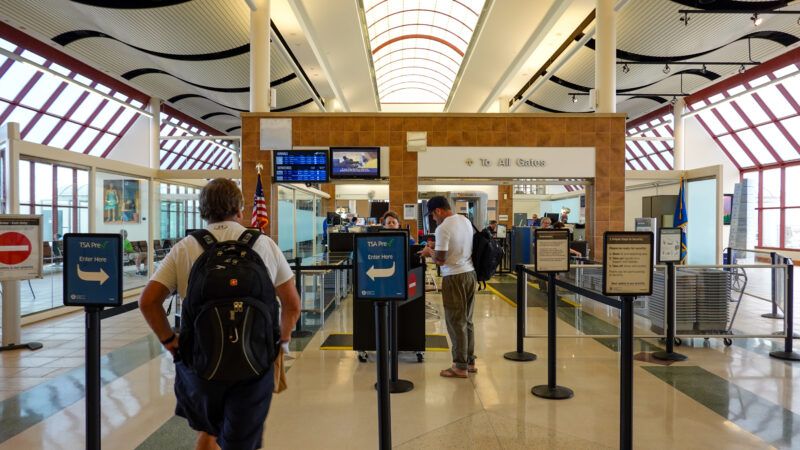Real ID Enforcement Has Been Pushed Back. Again.
The Real ID Act was passed in 2005. 17 years later, it's worth asking if it's finally time to scrap the law.

The Real ID Act was passed in 2005. 17 years later, the law has yet to go into effect. On Monday, government officials announced that enforcement would be delayed another two years.
What's taking so long? Rollout of the law, which would require travelers flying domestically in the United States to show a security-enhanced photo ID, has been plagued by confusion and state-level noncompliance. Despite years of warnings that enforcement was coming soon, it seems increasingly clear that Real IDs are far from actually becoming required at U.S. airports and federal buildings.
The Real ID Act was passed in 2005 as part of a wave of post-9/11 security-enhancement measures. The law was intended to curb the use of forged identity documents—apparently in response to the fact that most of the 9/11 plane hijackers used fake IDs to pass through airport security. In order to get a Real ID, individuals must provide extra documentation proving they are U.S. citizens or legal residents. The resulting ID cards are designed to prevent duplication or fraud and are marked with a star.
While government officials have cited the pandemic as reason to delay the law's enforcement for the seventh time, continued pushbacks—starting from the law's intended enforcement date in 2008—indicate that there are greater issues with ensuring Real ID uptake than COVID-related barriers.
Since the law's passage, attempts to prepare the nation for the eventual enforcement of the law have been faced with pushback from many states, which were wary of creating a federal database of ID holders. State-level straggling has been highly effective. For example, the Real ID-approved cards weren't issued in all 50 states until 2020—a startling 15 years after the law's passage. As of 2021, only 43 percent of state-issued IDs are Real ID-compliant, according to the Department of Homeland Security.
The continued delay of the Real ID Act's enforcement—a delay that threatens to stretch into two decades—indicates how pointless the law is in the first place. While the Real ID Act was presented as a solution to an urgent national security problem, there is precious little in way of evidence supporting the idea that this additional hurdle could prevent terrorism.
Instead, as Reason's Scott Shackford wrote last year "the government is demanding that Americans give up more of their privacy to the feds, subject themselves to additional inane bureaucracy, and carry around proof that we're citizens to be able to fly, even though none of that makes us more secure."
Nearly two decades after the Real ID Act passed, it's time to rethink this piece of post-9/11 security theatre. Cutting off possibly millions of Americans from air travel won't make the skies safer; what it will do is create yet another unnecessary and invasive level of government surveillance.


Show Comments (91)